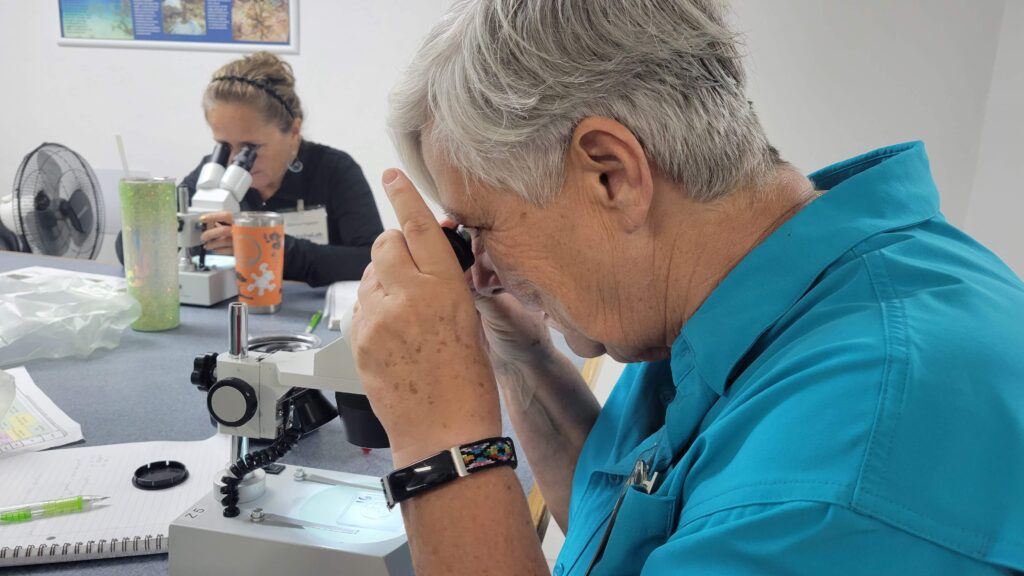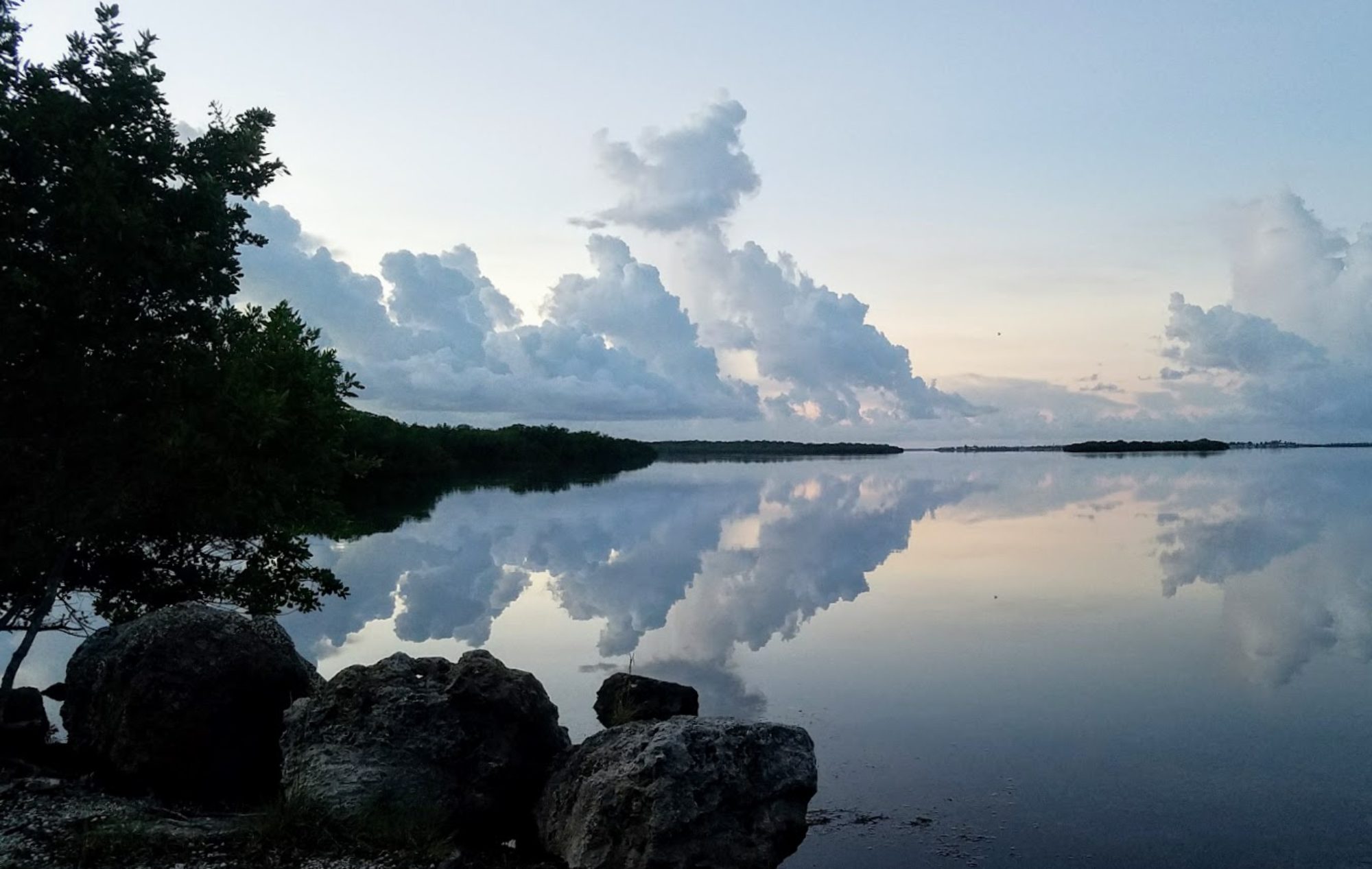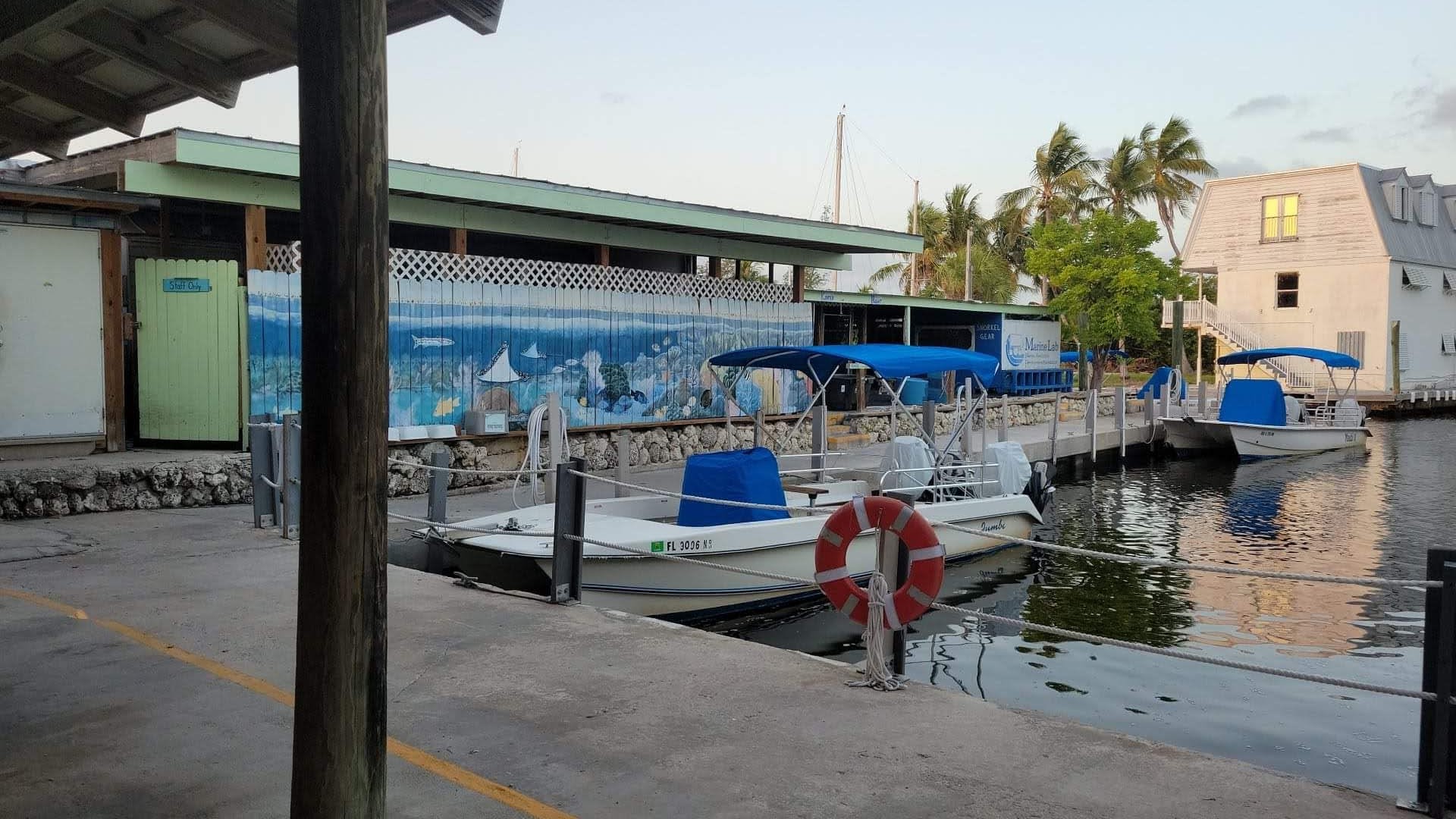It’s too hot to be out on the trail, but it’s almost never too hot to be on the water, and I was recently fortunate enough to attend a week-long class at Marine Lab Key Largo. The class, Coastal Marine Ecology, was marketed to teachers. Since I consider myself an informal educator, I signed up way back in February. Focusing on the basics of the marine ecology of the Upper Keys, the class was an in-depth exploration of the interaction among seagrass beds, mangroves, and coral reefs.

Because so much of the class took place on and IN the water, the very first activity we completed was a swimming test. This was very low-key and just made sure that we would be safe snorkeling through both the shallow seagrass beds and in the open water of the reefs.
Then we got down to the business of learning about the various habitats in the Keys. The focus of this first night was a general overview to provide the foundation for the rest of our classroom work. After this class, our first lab involved trying to identify zooplankton under a microscope. Just before the lab, our instructor had collected living samples for us to look at, and WOW! It is one thing to look at a drawing of a copepod, and quite another to watch one skip about the slide.

Over the next several days, we would learn about and then visit seagrass beds, mangrove islands, and coral reefs. Upcoming posts will share information about those classes and field experiences. Marine Lab did an excellent job preparing us to learn about the interaction among these three ecosystems, and how the health of each supports the health of the other two. The synergy of these relationships provides greater protection for Florida’s shoreline than any one ecosystem on its own.
Marine Lab’s campus is located on Key Largo, about an hour south of Miami. The property sits on Largo Sound near Adams Cut. This provides great access to both the coral reefs of the Florida Keys National Marine Sanctuary and Florida Bay in Everglades National Park. The main building comprises dorm rooms and labs for the education program, offices, restrooms, maintenance shop and gift shop. Other buildings on campus house a cafeteria, a floating conference center, and storage for equipment. The campus offers wireless internet access, which can be spotty. The cafeteria provides delicious meals and snacks with excellent availability.
Marine Lab offers one-day and short residential field trips for students. Programs are highly customizable to meet the varying needs of students and schools. Day camps are available for local students. Scout troops and family groups will also find useful programming. There’s a wealth of information available to help you plan your exxperience on the Marine Lab website, including free learning resources for elementary, middle, and high schoolers. You’ll find the entire Marine Lab staff to be supportive, encouraging, and genuinely excited about the work they’re doing.


Nice site and alot of great information, thank you!